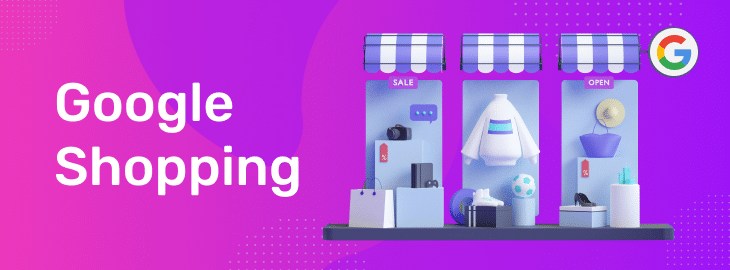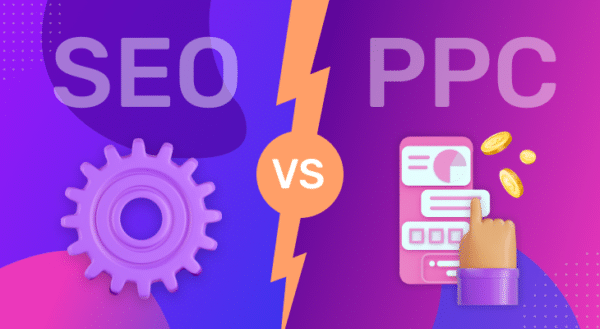Pay Per Click Marketing – Get Good PPC Traffic

Pay-Per-Click (PPC) marketing is an effective marketing technique that boosts your search results. A report by Blue Corona states that 75% of users say paid ads make it simpler to find information on the internet.
But you may ask, what is PPC? It is a web marketing model where advertisers are charged a fee if their ad is clicked. In contrast to SEO methods that try to earn organic traffic, PPC marketing involves attracting paid traffic. In the PPC model, advertisers bid to get their ad placed in a search platform’s sponsored links. This gives their product higher visibility when a user searches for a keyword related to the offering.
The search engine charges a fee each time a user clicks an ad and gets directed to your website. Most PPC advertisers generally don’t mind the fee because a $2 charge for a click can provide a $200 sale.
To create a successful PPC campaign, you need to research and select relevant keywords, organize them into ad groups and campaigns, and set up attractive landing pages that convert visitors into buyers. If you create a smartly targeted and relevant PPC campaign, the search engine may reward you by reducing your fee. For instance, if your landing pages and ads are satisfying and useful to visitors, Google reduces its charges per click, enabling you to make more profits.
Should I buy clicks for my site?
A click can be effective only if it creates a good impression. Therefore, you should craft your PPC marketing campaign by producing relevant ads for visitors to take action. For your ad to be effective, you should use a compelling call-to-action. It entices users to pay a visit to your site and even buy from it. Moreover, it increases the number of clicks you get and delivers a good ROI for the money you spent.
If you have a good budget for paid marketing, you should try PPC as it has proven effective.
Types of PPC campaigns
Now that you have determined whether PPC is beneficial for your business or not let’s look at some of the widely used pay-per-click types and their characteristics.
-
Search Advertising – Bing Ads and Google Ads
You’d definitely have seen PPC ads on popular search engines like Google and Bing. These ads are placed above and below organic results and carry a logo representing them as an advertisement.
To get your ad placed for the target keyword, you need to enter an auction and bid for the placement. The money is generally worth it as attractive paid ads can be a good way to get results faster than trying to earn organic rankings.
-
Social Advertising – LinkedIn and Facebook
You can use the power of social media to attract visitors and buyers. Place your ads on your target audience’s chats or newsfeeds on leading social networks like LinkedIn, Twitter, and Facebook. Thus, you can improve your brand visibility in a shareable environment.
With social advertising, you can direct interested visitors to your content, landing pages, and lead generation forms. Use targeted and attractive messages along with images to attract the right audience.
-
Display Advertising
This pay-per-click type shows your ads on Google partner sites across the web. You can target a specific audience, such as visitors to similar websites or pertinent industry platforms, to display your ads.
This method thus allows you to fine-tune the placement of your ads and decide who sees them. Use both text and image ads to make them engaging.

-
Google Shopping
Google Shopping is an ideal pay-per-click type for e-commerce businesses. Here, Google shows your ads above its main search results, enabling consumers to see prices and products before visiting a website.
Google Shopping ads give information about your goods’ price and style before you pay for a click. This increases the chances of conversions as users will already know about your product and its cost.
Advantages of PPC in Digital Marketing
Given below is a rundown of several benefits that PPC marketing brings in for your business. Let’s explore them here.
-
Instant Traffic
Organic marketing campaigns try to get your content on Google’s first page, but that takes time. Contrarily, PPC ads rank on the first page automatically. So, they can give you instant results.
-
Cost-effective
PPC marketing campaigns enable you to control your targeting, ad placements, and budget fully. You can optimize your methods to find the best results for your budget.
-
Tangible ROI
You can easily measure, improve, and monetize your PPC campaigns to get positive ROI. It allows you to test different strategies and ad types so that you can find the best fits for your unique needs.
-
Get Hot Leads
PPC adverts gain you interested visitors who are actively looking for your content or product. Your product will be right before the eyes of these hot leads, which will boost the conversion rate with each click.
-
No Algorithm-change Effect
SEO and content marketing efforts are affected by search algorithm updates, whereas PPC is more stable. PPC algorithms change only rarely, which allows you to understand the performance of your current and upcoming campaigns based on past metrics.
PPC Alternatives You Might Want To Consider
If you don’t have the budget for PPC marketing, you can try SEO methods as they can drive free traffic to your website. To be able to succeed with your SEO practices, you need to optimize your site for user experience. Also, the content you produce should be user-centric. SEO can provide excellent ROI as you can get a steady stream of interested visitors and buyers over the long term.
Go for SEO rather than PPC if you have –
- the resources for long-term benefits like content marketing and blogging,
- a limited budget, or
- the ability to build and establish your brand through organic means
Final Words
If PPC marketing is done the right way, it guarantees to improve your online presence, lead generation, website traffic, and sales. Sure enough, you will have to invest a fair amount for your PPC campaigns to be successful. Rest assured your investment will be worth the return you earn.

